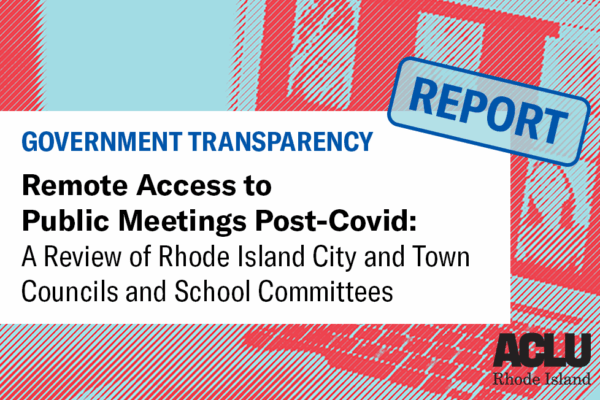RI's Open Meetings Act (R.I. General Laws §42-46 et. al.) - is an important government transparency law that promotes the public's right to have their voice heard on the issues they care about.
Last Updated: March 2018
The information below should not be taken as legal advice. If you have additional questions, or if you feel your rights have been violated, please contact the ACLU of RI.
Related Content
Feb 1, 2016

REPORT: Hidden Agendas: Violations of the Open Meetings Act's Public Notice Requirement (February 2016)
May 31, 2023

ACLU Report Calls on City And Town Councils, School Committees to Promote Greater Public Remote Open Meetings Accessibility
The ACLU of Rhode Island released a report today detailing the open meeting practices of city and town councils and school committees in providing the public remote access to their meetings in a post-Covid environment.
Dec 21, 2021

Open Government Groups Call for Renewal of Executive Order Providing for Remote Public Participation at Meetings
A coalition of open government organizations has called on Governor McKee to reinstate an executive order allowing remote meetings of public bodies while requiring livestreaming and remote public participation.
Stay Informed
Sign up to be the first to hear about how to take action.
By completing this form, I agree to receive occasional emails per the terms of the ACLU’s privacy statement.
By completing this form, I agree to receive occasional emails per the terms of the ACLU’s privacy statement.
